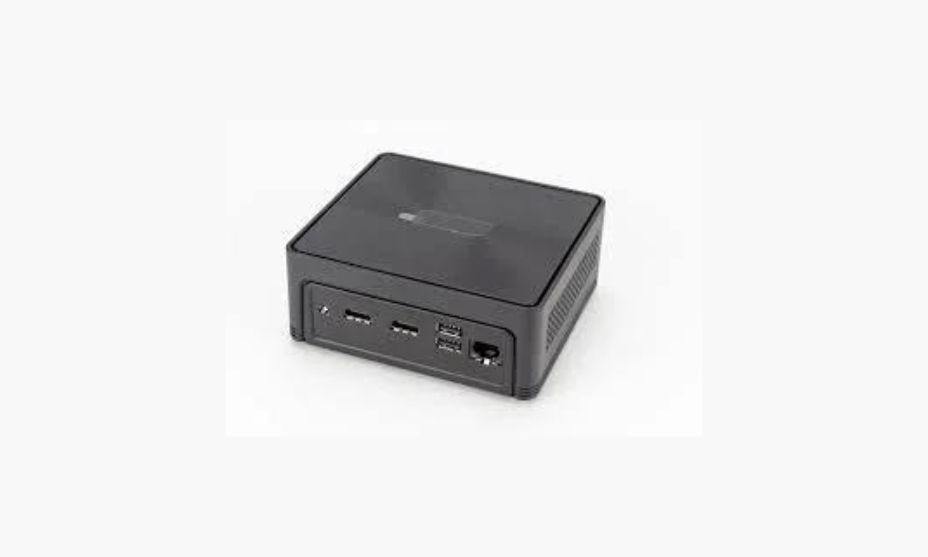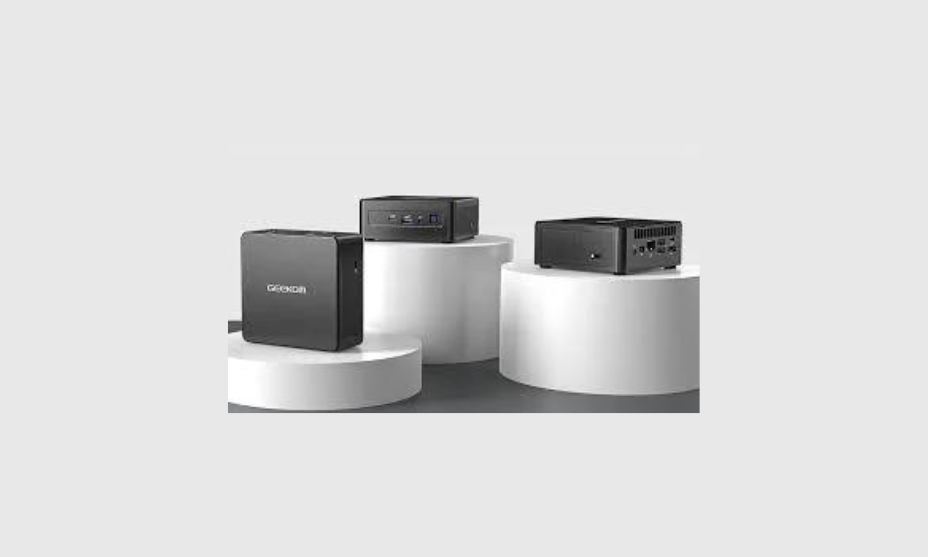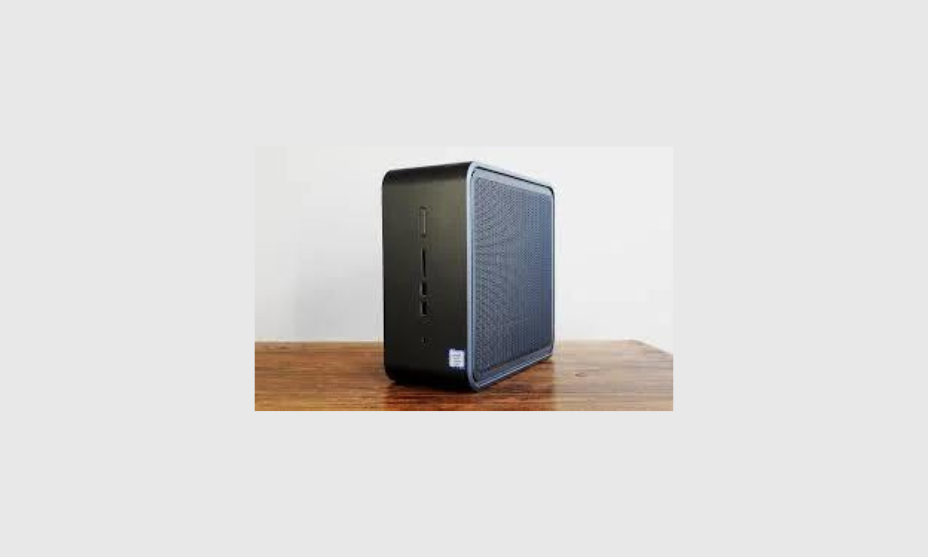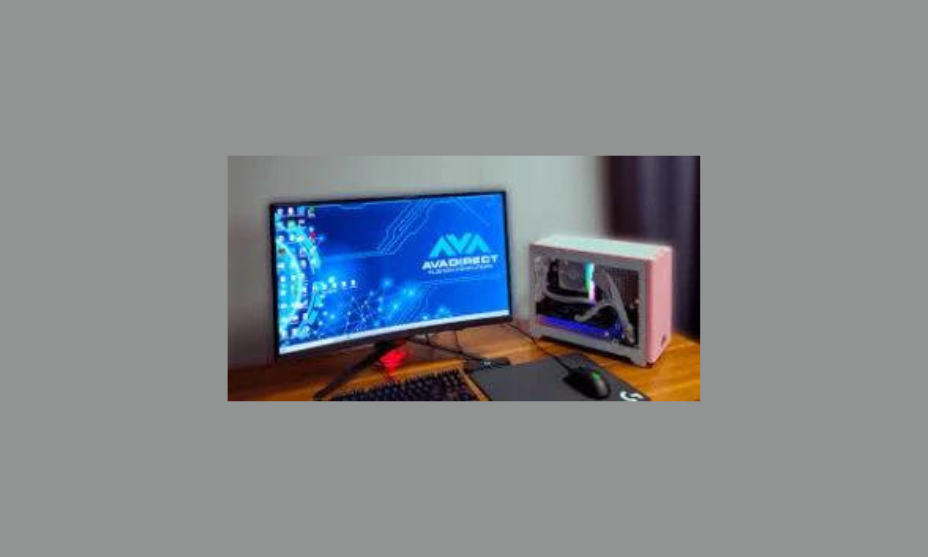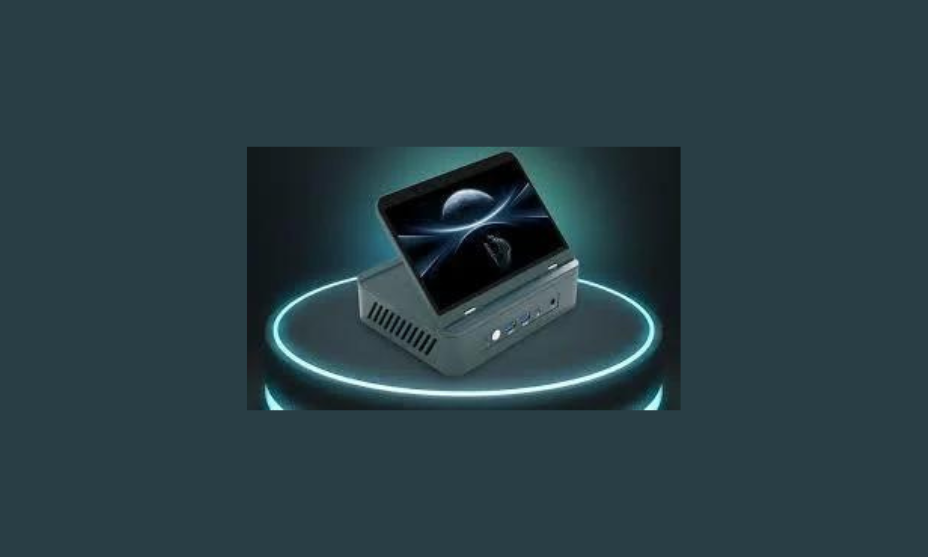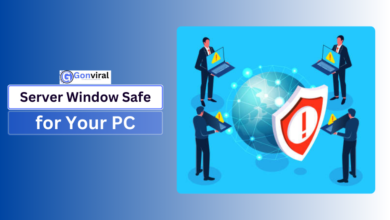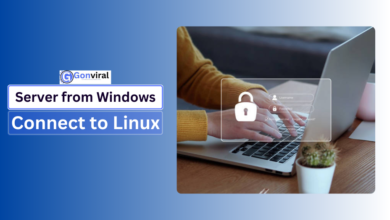Mini PC Pros and Cons: Is It Right for You?

Introduction
In recent years, Mini PCs have gained popularity as a compact computing solution. Whether you’re looking to save space, reduce energy costs, or simply want a portable option, understanding the Mini PC pros and cons is essential in making an informed decision. This comprehensive guide will delve into various aspects of Mini PCs, helping you determine if one is right for your needs.
What is a Mini PC?
A Mini PC, often referred to as a compact or small-form-factor PC, is a type of computer designed to deliver powerful computing capabilities in a compact size. Unlike traditional desktop computers, which typically require significant desk space, Mini PCs are engineered to occupy minimal space while still providing the performance necessary for a wide range of computing tasks.
This makes them an ideal choice for users who seek functionality without the bulk of standard PCs. The development of Mini PCs has revolutionized the computing landscape, allowing users to leverage advanced technology in diverse environments, including homes, offices, and even as part of entertainment systems.
Design and Form Factor
The design of Mini PCs is one of their most attractive features. They are often significantly smaller than traditional desktops, with some models being as small as a paperback book. Their compact form factor allows for easy placement on desks, under monitors, or even mounted on the back of displays.
Many Mini PCs boast sleek and modern aesthetics, making them visually appealing for both home and professional environments.
The use of high-quality materials, such as aluminum and plastic, not only contributes to their stylish appearance but also enhances durability. This design innovation caters to consumers who value both functionality and aesthetics in their technology choices.
Performance Capabilities
Despite their small size, Mini PCs are equipped with powerful hardware that can rival traditional desktop computers. Many models feature Intel or AMD processors, capable of handling demanding applications such as video editing, graphic design, and gaming. Furthermore, Mini PCs often come with ample RAM and storage options, allowing users to multitask effectively and store significant amounts of data.
Some higher-end models even support gaming-level graphics and can run intensive software smoothly. This combination of power and efficiency makes Mini PCs suitable for a wide variety of uses, from casual browsing to professional-level tasks.
Versatility and Use Cases
Mini PCs are incredibly versatile, making them suitable for various applications. They can serve as home entertainment centers, digital signage solutions, or powerful workstations. In a home setting, users can connect Mini PCs to TVs for streaming movies and shows, or use them as gaming machines. In corporate environments, they can function as reliable terminals for office applications or as part of a virtual desktop infrastructure.
Additionally, educational institutions utilize Mini PCs for classroom setups or lab environments, providing students with essential computing resources. The flexibility of Mini PCs ensures that they can adapt to the needs of diverse users across different sectors.
Connectivity Options
Mini PCs come equipped with a range of connectivity options, making them compatible with various peripherals and networks. Standard features often include multiple USB ports, HDMI outputs, and Ethernet connections. Many models also offer wireless connectivity options, such as Wi-Fi and Bluetooth, enabling seamless integration with other devices.
This level of connectivity enhances the usability of Mini PCs, allowing users to connect keyboards, mice, external storage devices, and even printers without hassle. Furthermore, the presence of advanced ports ensures that Mini PCs can easily connect to modern displays and networks, enhancing their functionality and user experience.
Energy Efficiency
One of the significant advantages of Mini PCs is their energy efficiency. They are designed to consume less power compared to traditional desktop computers, leading to lower electricity bills and a reduced environmental footprint. This is particularly beneficial for users who leave their computers running for extended periods or those concerned about energy consumption in their homes or offices.
The compact size of Mini PCs also allows for innovative cooling solutions, which further enhances their energy efficiency. Overall, the ability to deliver robust performance while consuming less energy makes Mini PCs a compelling option for environmentally conscious consumers.
Portability and Mobility
Mini PCs are designed with portability in mind, making them easy to transport. Their lightweight and compact nature allows users to easily carry them in a backpack or briefcase, enabling them to work or play on the go. This feature is especially advantageous for professionals who travel frequently or students who need computing power in various locations.
Some Mini PCs are even equipped with battery options, allowing them to function without being tethered to a power source. The mobility of Mini PCs offers users the freedom to adapt their computing needs to their lifestyle, whether at home, in the office, or while traveling.
Comparison with Traditional PCs
When comparing Mini PCs to traditional desktops, several key differences emerge. While Mini PCs excel in size, portability, and energy efficiency, traditional PCs often offer superior upgradeability and raw performance. Traditional desktops typically have more space for additional components, such as larger graphics cards or extra storage drives.
However, as technology continues to advance, Mini PCs are closing the gap in terms of performance, and many models now support a range of upgrade options, including RAM and storage. The choice between a Mini PC and a traditional desktop ultimately depends on individual needs, preferences, and specific use cases.
Price Point and Market Availability
Mini PCs are available at various price points, making them accessible to a broad range of consumers. The market offers options from budget-friendly models to high-end systems, allowing users to select a Mini PC that fits their budget and performance requirements.
This diversity in pricing also reflects the wide range of specifications available, with some models featuring cutting-edge technology and others catering to more basic computing needs. Additionally, the increasing popularity of Mini PCs has led to a surge in market availability, with numerous brands and models competing for consumer attention. This variety ensures that users can find a Mini PC that meets their specific needs without overspending.
Types of Mini PCs
Barebone Mini PCs
Barebone mini PCs are basic systems that come with the essential components, such as the chassis, motherboard, and power supply, but lack certain features like RAM, storage, and operating systems. Users can customize these PCs according to their requirements, making them ideal for enthusiasts who enjoy building their own systems.
By choosing the components, users can tailor performance and storage to suit specific tasks, whether for gaming, media consumption, or productivity. Barebone mini PCs often serve as an excellent foundation for a personalized computing experience, offering flexibility while remaining compact.
Intel NUC (Next Unit of Computing)
Intel’s NUCs are a popular line of mini PCs known for their powerful performance and compact design. These systems can be equipped with various Intel processors, making them suitable for a wide range of applications, from casual browsing to demanding tasks like video editing.
NUCs often support additional features like 4K video output and advanced graphics capabilities, catering to gamers and multimedia enthusiasts. Their small size makes them easy to integrate into home theater setups or to use as compact workstations. The modular nature of NUCs also allows users to upgrade components as needed, extending the lifespan of the device.
Mini Gaming PCs
Mini gaming PCs are designed specifically for gamers who want high-performance hardware in a compact form. These systems often feature powerful graphics cards, fast processors, and ample cooling solutions, enabling them to handle the latest games at high settings.
Despite their small size, mini gaming PCs provide impressive performance and are usually equipped with RGB lighting and customizable aesthetics, appealing to gamers who value style alongside functionality. Their portability makes them ideal for LAN parties or traveling gamers who need a robust setup without the bulk of a traditional gaming rig.
Fanless Mini PCs
Fanless mini PCs operate without any moving parts, making them silent and efficient. They use passive cooling systems, which dissipate heat through the chassis itself. These devices are ideal for environments where noise is a concern, such as libraries, recording studios, or home theaters.
Fanless mini PCs often sacrifice some performance compared to their fan-cooled counterparts but compensate with lower power consumption and heat generation. They are typically used for basic tasks like web browsing, streaming media, or as home servers, offering reliable performance while maintaining a quiet operation.
All-in-One Mini PCs
All-in-one mini PCs integrate the computer components with a monitor, providing a streamlined setup that saves space and reduces cable clutter. These devices are often designed for both personal and professional use, offering features such as touchscreen functionality, high-definition displays, and various connectivity options.
All-in-one mini PCs are perfect for those looking for an efficient workspace without the need for a separate monitor and can be an attractive addition to home offices or modern living spaces. They combine aesthetics with practicality, catering to users who value both performance and design.
Industrial Mini PCs
Industrial mini PCs are robust systems built to withstand harsh environments, including extreme temperatures, dust, and moisture. These devices are often used in manufacturing, transportation, and automation applications, where reliability and durability are paramount.
Industrial mini PCs usually come with extended warranties and support, ensuring they can operate continuously in demanding conditions. They may include specialized interfaces for industrial equipment and are designed for applications such as data collection, monitoring systems, and machine control, providing reliable performance in critical environments.
Home Theater PCs (HTPC)
Home Theater PCs are optimized for media consumption and entertainment purposes. These mini PCs are designed to connect to televisions and sound systems, enabling users to stream content from various sources, such as Netflix, Hulu, or local media libraries. HTPCs often feature HDMI outputs, powerful audio capabilities, and support for high-definition video formats.
They may also come preloaded with media center software, providing a user-friendly interface for navigating content. Their compact size allows them to blend seamlessly into home entertainment setups, delivering a cinema-like experience in the comfort of home.
Chromeboxes
Chromeboxes are mini PCs that run on Google’s Chrome OS, making them ideal for users who primarily rely on cloud applications and services. These devices are designed for web browsing, document editing, and accessing various online services, offering a simplified computing experience with fast boot times and automatic updates.
Chromeboxes are often used in educational environments and businesses where cloud computing is prevalent. Their lightweight nature and lower cost make them an attractive option for budget-conscious users who do not require the extensive functionality of traditional operating systems.
Pros and Cons of mini PCs
| Aspect | Explanation |
|---|
Pros |
| Compact Size | Mini PCs are designed to be small and lightweight, making them easy to fit into limited spaces. This compact design is ideal for small offices, home theaters, or setups where desk space is at a premium. They can easily be tucked away on a shelf or mounted behind a monitor, allowing for a clutter-free workspace. |
| Energy Efficiency | These devices consume significantly less power than traditional desktop PCs. This energy efficiency not only reduces electricity bills but also contributes to a smaller carbon footprint, making mini PCs a more environmentally friendly option for users concerned about sustainability. |
| Cost-Effective | Mini PCs generally have a lower price point compared to full-sized desktops. This affordability makes them accessible to a broader range of consumers, especially students and casual users who may not need the high performance of larger machines. Additionally, the lower price means users can invest in other peripherals or software. |
| Versatility | Mini PCs can serve various purposes, from media centers to basic office tasks, gaming, and even as servers for small businesses. Their flexibility allows users to customize their experience based on their specific needs, making them suitable for a wide range of applications. |
| Quiet Operation | Many mini PCs utilize fanless designs or low-noise components, resulting in quieter operation. This makes them perfect for environments where noise can be distracting, such as in libraries, bedrooms, or shared workspaces. The lack of noise can enhance focus and productivity for users who prefer a calm atmosphere. |
Cons |
| Limited Upgradeability | Due to their compact design, mini PCs often have limited options for upgrading components like RAM, storage, or graphics cards. This can be a drawback for users who may want to enhance performance over time, as they may find themselves needing to purchase a new device rather than simply upgrading their current one. |
| Performance Constraints | While many mini PCs are capable of handling everyday tasks, they may struggle with more demanding applications like high-end gaming or heavy multitasking. Users looking for advanced performance may find that mini PCs do not meet their needs compared to traditional desktops equipped with more powerful hardware. |
| Thermal Management | The small form factor of mini PCs can lead to overheating issues, especially during intensive tasks. Limited airflow and compact designs may result in thermal throttling, which can impact performance. Users should consider models with efficient cooling systems to mitigate these potential issues. |
| Limited Ports and Connectivity | Mini PCs may come with fewer ports than standard desktop PCs, which can limit connectivity options for peripherals and accessories. Users may need to invest in additional adapters or hubs to connect multiple devices, which can detract from the convenience and ease of use that mini PCs offer. |
| Less Customization | Compared to traditional desktops, mini PCs typically have fewer customization options. This lack of variety can limit users who prefer to personalize their machines with unique builds or aesthetic features. Additionally, the pre-configured nature of many mini PCs may not cater to users looking for specific hardware combinations. |
Mini PC vs. Desktop: A Comprehensive Comparison
When comparing Mini PCs to traditional desktops, several factors come into play. Each type of computer has its own set of advantages and disadvantages, which cater to different user needs and preferences. This comparison will delve into three critical aspects: size and space, performance, and price.
Size and Space
One of the most defining characteristics of Mini PCs is their compact size. Typically, Mini PCs are designed to be lightweight and portable, often resembling small boxes or even thick books. This smaller footprint makes them ideal for environments where desk space is limited, such as apartments, dorm rooms, or small home offices. Users can easily place them on bookshelves, mount them behind monitors, or transport them if needed.
In contrast, traditional desktops are bulkier and generally require more room. They usually consist of a larger tower case, which houses powerful components like the motherboard, GPU, and hard drives, along with separate peripherals such as monitors, keyboards, and mice.
For users who have dedicated office spaces with ample room, a desktop can fit seamlessly into their setup. However, for those who frequently relocate or have limited space, the size of a desktop can be a significant drawback. Therefore, the decision often hinges on the available space and the specific use case, making Mini PCs a preferable option for many users.
Performance
Performance is another crucial factor to consider when comparing Mini PCs and desktops. Generally speaking, desktops outperform Mini PCs due to their larger form factors, which can accommodate more powerful hardware. This includes high-end CPUs, dedicated graphics cards, and more extensive cooling solutions.
For users engaged in resource-intensive tasks like gaming, video editing, or 3D rendering, a desktop’s enhanced performance capabilities can be a game-changer. The ability to upgrade components also means that desktops can be tailored to meet evolving performance needs over time.
On the other hand, Mini PCs, while increasingly powerful, still often fall short in terms of raw performance compared to their larger counterparts. They usually come equipped with integrated graphics and lower-end processors designed for basic tasks like web browsing, document editing, and media consumption.
While some Mini PCs can handle light gaming and multitasking, they may struggle with more demanding applications. As a result, users whose primary need is high performance may find that a traditional desktop is a better investment, offering greater capabilities and longevity.
Price
Price is a significant consideration when choosing between Mini PCs and desktops. Mini PCs generally come with lower price tags, making them accessible for budget-conscious buyers. They are often designed to offer essential functionality without the need for high-end specifications, which helps keep costs down.
This affordability is particularly appealing to students, casual users, or anyone looking for a secondary device that can handle everyday tasks without breaking the bank.
However, the lower cost of Mini PCs often comes at the expense of performance and upgradeability. Many Mini PCs have limited hardware options, making it challenging to upgrade components like RAM or storage in the future. In contrast, traditional desktops may have higher initial costs due to their advanced specifications but offer more flexibility for upgrades and customizations.
For instance, users can easily swap out graphics cards, add more storage, or enhance RAM in a desktop as their needs grow. Thus, while Mini PCs can be a cost-effective solution for basic use, desktops provide a long-term investment for users who anticipate their needs will expand, warranting a more powerful machine.
Connectivity Options
Mini PCs are equipped with various connectivity options, including:
- USB Ports: Typically, Mini PCs come with multiple USB ports (USB-A and USB-C) for connecting peripherals.
- HDMI and DisplayPort: These ports enable users to connect monitors or TVs for larger displays.
- Ethernet and Wi-Fi: Most Mini PCs support both wired and wireless internet connections, offering flexibility based on user needs.
Mini PC Performance
Mini PCs have become increasingly popular due to their compact size and versatility, but performance can vary significantly based on several critical components. Here’s a detailed look at the factors affecting the performance of Mini PCs:
CPU (Central Processing Unit)
The CPU is arguably the most crucial element in determining a Mini PC’s performance. It acts as the brain of the computer, executing instructions and processing data.
- Processor Types: Mini PCs equipped with higher-tier processors, such as the Intel Core i5 or AMD Ryzen series, generally outperform those with entry-level CPUs. These mid-range and high-performance processors are designed to handle more complex tasks, making them ideal for gaming, content creation, and multitasking.
- Core Count and Threads: A CPU with multiple cores and threads can efficiently manage simultaneous processes, further enhancing performance in demanding applications.
RAM (Random Access Memory)
RAM plays a significant role in how smoothly a Mini PC operates, especially when multitasking.
- Recommended Amount: For general use, a Mini PC with at least 8GB of RAM is advisable. This amount is typically sufficient for everyday tasks such as web browsing, document editing, and media playback.
- Gaming Requirements: Gamers should consider models with 16GB of RAM or more to ensure that games run smoothly, particularly modern titles that require higher memory capacities for optimal performance.
Storage Options
The type of storage used in a Mini PC can significantly impact its speed and responsiveness.
- SSD vs. HDD: Solid State Drives (SSDs) are much faster than traditional Hard Disk Drives (HDDs). They provide quicker boot times and reduced loading periods for applications and files.
- Performance Benefits: Many Mini PCs now come with the option to install SSDs, which is a crucial consideration for users seeking improved performance. This is particularly important for tasks involving large files or extensive applications, where speed can dramatically affect productivity.
Mini PC for Gaming
While not traditionally known for gaming, some Mini PCs are equipped with integrated graphics capable of handling light gaming. For more demanding titles, look for models with dedicated graphics cards.
Use Cases for Mini PCs
Mini PCs are compact and versatile devices that have gained popularity in various sectors due to their small form factor, energy efficiency, and powerful performance. Here’s an exploration of some of the most effective use cases for mini PCs.
Home Theater PC (HTPC)
Mini PCs can be used as Home Theater PCs, allowing users to stream movies, TV shows, and music directly to their television. Their small size means they can be easily integrated into existing entertainment systems without taking up too much space. With support for 4K resolution and various streaming services, mini PCs are perfect for a seamless media experience.
Gaming
While traditional gaming PCs can be bulky and expensive, mini PCs offer a portable alternative for gaming enthusiasts. Many mini PCs are equipped with powerful GPUs, making them capable of running demanding games. Gamers can enjoy high-quality graphics and performance without the need for a large desktop setup.
Office Productivity
Mini PCs are ideal for office environments, where space is often limited. They can efficiently run essential office applications like word processors, spreadsheets, and presentation software. Their energy efficiency also makes them a cost-effective choice for businesses looking to reduce their carbon footprint.
Digital Signage
In retail and corporate environments, mini PCs can be employed as digital signage solutions. They can drive displays, kiosks, and interactive screens to showcase advertisements, information, or menus. Their compact size allows for easy mounting behind screens or in tight spaces, making them suitable for various locations.
Educational Tools
Mini PCs can be utilized in classrooms and educational institutions as teaching aids. They can run educational software, serve as student workstations, or power interactive whiteboards. Their affordability and low power consumption make them an attractive option for schools looking to implement technology in education.
Smart Home Hub
As smart homes become more prevalent, mini PCs can serve as central hubs for controlling various smart devices. They can integrate with home automation systems to manage lighting, security, and heating, providing a user-friendly interface for homeowners to monitor and control their smart home ecosystems.
Development and Testing
Developers and IT professionals often use mini PCs for software development and testing environments. Their portability allows for easy setup in different locations, and they can run various operating systems and applications for testing purposes. Additionally, their performance can be tailored to specific development needs.
Point of Sale (POS) Systems
Mini PCs can be an excellent solution for Point of Sale systems in retail stores, restaurants, and other service-oriented businesses. Their compact design saves counter space while still providing the necessary processing power to run POS software efficiently.
Edge Computing
With the rise of IoT (Internet of Things) devices, mini PCs can play a vital role in edge computing. They can process data locally, reducing latency and bandwidth usage. This is particularly useful in applications such as smart cities, manufacturing, and logistics, where real-time data processing is crucial.
Personal Cloud Storage
Mini PCs can be configured as personal cloud servers, allowing users to store, access, and share files securely over the internet. This setup offers an alternative to commercial cloud services, giving users greater control over their data while providing a robust solution for backup and file sharing.
Future of Mini PCs
As technology advances, Mini PCs are expected to become even more powerful and versatile. Upcoming trends may include:
- Enhanced Performance: Future Mini PCs may incorporate advanced processors and graphics, making them suitable for more demanding applications.
- Improved Cooling Solutions: Innovations in heat dissipation could lead to quieter and more efficient systems.
- Broader Applications: With the rise of smart homes and IoT devices, Mini PCs may find more applications in home automation and control systems.
Cost Analysis
When considering Mini PC pros and cons, it’s crucial to weigh the costs. Mini PCs can range from affordable options to more premium models. Price comparisons with traditional desktops and laptops can help determine the most cost-effective solution for your needs.
Does a small computer operate more quickly than a microcomputer?
Minicomputers are far faster than microcomputers in terms of performance and speed since they have multiprocessing systems that are capable of all of these things, particularly handling multiple users at once.
Conclusion
Mini PCs offer a unique blend of portability, affordability, and energy efficiency, making them a popular choice for various users. However, their limitations in performance and upgradeability should not be overlooked. By carefully evaluating your requirements and the pros and cons outlined in this article, you can make an informed decision about whether a mini PC is the right fit for you.
FAQs, Mini PC Pros and Cons
1. What are the advantages of using a Mini PC?
Mini PCs are compact, energy-efficient, and typically cost less than traditional desktop computers. They are ideal for basic computing tasks, media streaming, and office use, and their small size makes them easy to transport and integrate into different environments.
2. Are Mini PCs good for gaming?
While many Mini PCs are not designed for high-end gaming, some models can handle casual gaming and lower-end titles. However, for serious gaming, you may need a Mini PC with dedicated graphics capabilities, which may come at a higher cost.
3. How does a Mini PC compare to a traditional desktop in terms of performance?
Mini PCs are generally less powerful than traditional desktops, especially in terms of processing power and graphical capabilities. They excel in lightweight tasks but may struggle with intensive applications like video editing or heavy multitasking.
4. What are the cons of using a Mini PC?
The major drawbacks include limited upgrade options, less powerful hardware, and potential overheating in some models. They also lack expandability compared to desktops, meaning you can’t easily swap out components like RAM or storage.
5. Can I upgrade the components of a Mini PC?
Mini PCs typically offer limited upgrade options. While some allow for RAM or storage upgrades, most components like the processor and graphics card are often soldered onto the motherboard, making upgrades more difficult.

